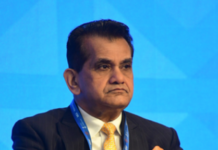By Mohammed Shafeeq
Hyderabad– India needs a comprehensive ecosystem to impart quality skills to its youth so as to meet global standards, says an expert in skill development.
“We have always been very educational as a country, that somehow made us very good in the brain but lacked power in the hands,” Vijay Ketan Mitra, founder and Chief Executive Officer, PositiveShift (PS) International, a company in the learning and skill development sector, told IANS.
As India progressively moves toward becoming a global knowledge economy, it must meet the aspirations of youth and aim towards skilling them with the best possible standards, he said, adding that youth are the country’s strength, and, as the rest of the world is ageing, India is well poised to become the skill capital of the world.
“India currently faces a severe shortage of skilled workers as compared to other countries, and the accelerated economic growth has only increased the demand for skilled manpower. The challenge is further aggravated by the fact that the skill ecosystem cuts across multiple sectors and requires the involvement of various stakeholders, such as state and central government departments, training providers, employers, industry and knowledge partners, assessment and certification bodies, and the beneficiaries — the trainees.”
An innovation partner with the National Skill Development Corporation (NSDC), PositiveShift has a target to skill one million youth by 2022.
The company skills the youth in manufacturing sectors such as telecom, electronics and information technology and service sectors like healthcare, retail, logistics, tourism and hospitality.
Headquartered in London, PS has branch offices in Hyderabad and Kolkata, and partner offices in Vizag and Chennai.
“Value-based excellence, trust-based transparency, leadership-based behaviour and learning-based growth are our fundamental values and principles,” said Mitra, who has 14 years’ experience in business change and organisational development.
He believes competence, credibility and confidence make PS stand out from the competition.
“At every stage we have created our role model and aspired to be like them. We had companies who were in the industry for longer than us. Rather than competing with them, we started to be inspired by them and that helped us a lot in creating business processes, and quality systems,” said Mitra, whose firm has so far trained and certified about 10,000 people through 53 centres spread across nine Indian states.
The company also claims to have achieved 65 job placements. “We have six strategic partners who bring in different areas of specialisation in the area of on-job-training, placement capability and corporate consulting assignments in India,” he said.
PS, which is certified to run management and leadership courses for London’s Chartered Management Institute, helps corporates improve their business results by firmly engaging with employees and driving real behaviour change through customised learning solutions.
According to Mitra, the skill development courses are primarily prescribed by NSDC Skill Councils. These industry bodies develop National Occupational Standards (NOS).
“These Standards are given to us so that we can develop curricula and then the content from them. The application of the learning to the standards could vary from partner to partner. We primarily focus a lot on practical and action-oriented learning than theory,” he explained.






